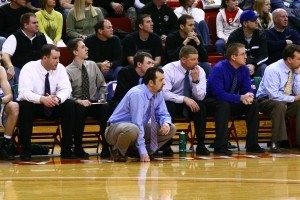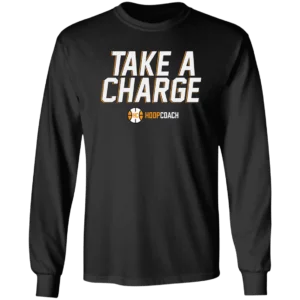Some years ago, some friends and I were discussing other coaches’ programs- like we all do. A certain coach’s name was brought up whose identity will be withheld because the point of this article isn’t about trashing a person for coaching basketball poorly; rather it’s about what that coach represented for the purposes of this article.
While we can’t be real concerned with what coaches in general think of our program, we all have certain individuals whose opinions are very important to us. We want those coaches, whether they are friends, mentors, opponents or successful coaches in the area, to have favorable impressions of how we shape our program and teams.
Skills at Coaching Basketball
With that in mind, when the coach’s name was mentioned, my exact quote was, “He’s got nothing”. My colleagues’ reaction was laughter but they wanted me to expand. In my mind, it was pretty simple; I didn’t think that coach brought a single thing to the table while coaching basketball to give his team any advantage in a game. The players received little or no help getting the ball in good spots or getting good looks. Those players were also pretty much on their own to defend opponents by their own devices. They didn’t play hard and, if there were defensive schemes, they weren’t apparent.
From those assertions, one can conclude that this individual wasn’t a good practice coach. That was only half of the problem because he wasn’t very good in games either. To further expand I added, “He’s also not a very good recruiter, public speaker, motivator or PR guy-and he’s not even funny.” In short, “He’s got nothing.”
My point then and now, of course, is that everyone who lines up and faces other coaches has to have “something” to compete; in fact it behooves us to have several or more “somethings” or difference making characteristics. Obviously, the most important difference makers are players and we all know coaches whose access to players is, by far, their most difference making “something.” Not their skill at coaching basketball. When these coaches add the trait that I call, “not getting in talent’s way”, it’s a formidable combination. Good players or not, we’re all charged with finding ways to maximize our assets and minimize our opponents’ assets.
Program Pillars
In the past we have discussed program pillars such as the secondary break for Dean Smith, helpside defense for Bob Knight, and offensive rebounding for Tom Izzo as prime examples of technical aspects of coaching basketball that are and were characteristic for those coaches each and every year. We should all be identified with one or more X and O aspects of the game on an ongoing basis.
Pillars certainly classify as “somethings” but “somethings” can also be abstractions such as an individual coach’s levels of confidence, poise, and the ability to “connect”
with the team as whole and the players individually. Sometimes, we can get caught up so much in the technical side of the game, that we can forget that leadership skills are just as important. There’s nothing quite like a team that is inspired and motivated by their coach to play at peak levels on a consistent basis. Teams that like playing for their coach can often transcend personnel and technical deficiencies.
There are many ways to be an effective coach but almost all start with a frame of mind. Had our unnamed coach in question only specialized in the leadership side of coaching, he would have had something with which to compete- in spite of other shortcomings.
What makes a coach good at “coaching basketball”?



